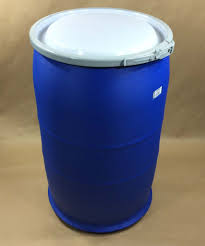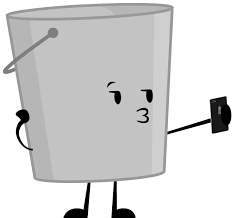I want to talk about the feeling of emptiness so many of us experience (sometimes as depression) and our sense that substances (i.e., drugs, alcohol) can fill that void. Why is this conceptual sinkhole so universal…and so relentless? Can it be overcome? If not, it seems we’re doomed to live our lives between two crappy alternatives: emptiness and addiction.
I know I said my next two posts would try to apply some of Peterson’s suggestions to strategies for moving beyond addiction. But that can wait another week. I need a break from writing and thinking about Peterson. The comments on my last two posts were mostly polarized — people either loved or hated Jordan Peterson. I wasn’t completely surprised. Peterson is nothing if not controversial. But political arguments gets tiring. So I’ll take a week off to write about something different.
Ever hear of Metaphors We Live By? That’s the title of a book by Lakoff & Johnson (2003) — and a powerful idea they’ve been pursuing since at least the early 80s. The idea is that metaphors are not just comparisons we make to clarify concepts; metaphors are actually the basic organizing structure of our cognition. In other words, we think in metaphors. We use metaphors to make sense, not just of unusual or novel ideas but of everything.
 Think of everyday concepts like, say, arguments. We tend to think of an argument as a war, with a winner and a loser, and a certain amount of damage. The war metaphor gives the concept “argument” its meaning. It’s not a matter of listening or sharing; it’s something you either win or lose. How do we conceptualize “communication”? Often as a conduit, a tube connecting speaker and listener. If you see communication as a conduit, then your main concern is sending a message down the tube and having it
Think of everyday concepts like, say, arguments. We tend to think of an argument as a war, with a winner and a loser, and a certain amount of damage. The war metaphor gives the concept “argument” its meaning. It’s not a matter of listening or sharing; it’s something you either win or lose. How do we conceptualize “communication”? Often as a conduit, a tube connecting speaker and listener. If you see communication as a conduit, then your main concern is sending a message down the tube and having it  received at the other end. A failure in communication is seen as an obstruction or break in the tube. But if our metaphor for communication were different, say a pool of water encompassing speaker and listener, then we’d view communication failures in a completely different way. Maybe as a drought.
received at the other end. A failure in communication is seen as an obstruction or break in the tube. But if our metaphor for communication were different, say a pool of water encompassing speaker and listener, then we’d view communication failures in a completely different way. Maybe as a drought.
Because metaphors have (a limited number of) attributes or features, they get us to see things in certain ways and prevent us from seeing things in other ways. And of course all this is unconscious — under the hood.
I often think of addiction as a thought problem (as do many others). But what if, instead of seeing addiction as a cognitive bias, we see it as the result of an unconscious metaphor with a powerful attribute that holds us prisoner (another metaphor: addict as prisoner).
When we think of ourselves as “empty” or “lacking”, we are using a universal metaphor lifted from everyday life: the metaphor of the container. My self is a container. Containers have one prominent attribute: degree of fullness.  Containers are either very full or partly full or partly empty or very empty. See the point? The only other attribute that comes to mind is “leakiness”. If you suffer from anxiety rather than depression, this may strike a chord.
Containers are either very full or partly full or partly empty or very empty. See the point? The only other attribute that comes to mind is “leakiness”. If you suffer from anxiety rather than depression, this may strike a chord.
 So you wake up in the morning and you feel empty. You say to yourself: shit, I feel so empty. I’d really like to feel more full. So I will take a drug or a drink to fill myself up. Maybe not right now but soon. I really dislike this sense of emptiness so I will put something
So you wake up in the morning and you feel empty. You say to yourself: shit, I feel so empty. I’d really like to feel more full. So I will take a drug or a drink to fill myself up. Maybe not right now but soon. I really dislike this sense of emptiness so I will put something  into my self to fill it up. If you’ve ever been in addiction you know exactly what I mean. Yet the reason we feel “empty” in the first place — rather than, say, uninvolved, or emotional, or out of sorts — is because of the container metaphor. Empty containers need to be filled up.
into my self to fill it up. If you’ve ever been in addiction you know exactly what I mean. Yet the reason we feel “empty” in the first place — rather than, say, uninvolved, or emotional, or out of sorts — is because of the container metaphor. Empty containers need to be filled up.
Now let’s say this is a problem for you, or maybe someone you know. How could you help relieve the feeling of emptiness so completely that the attraction of substances would pretty much vanish? I’m trying this on myself, as an experiment, because sometimes I do feel empty. (I don’t take illegal drugs anymore, but I find it hard to resist a drink at the end of the day, to fill me up.) Well, what you could do is feel your own insides and/or  touch or pat yourself (on the outside). You’ll find that you are in fact very full. Of stuff. Tissue and muscles and blood and bone, or, maybe more to the point, you are full of chemicals; neurotransmitters (including opioids!) coursing around inside your body constantly. If you are a container, you’re certainly not an empty one.
touch or pat yourself (on the outside). You’ll find that you are in fact very full. Of stuff. Tissue and muscles and blood and bone, or, maybe more to the point, you are full of chemicals; neurotransmitters (including opioids!) coursing around inside your body constantly. If you are a container, you’re certainly not an empty one.
The first thing I did this morning was pat my chest and stomach: Yep, full. And the feeling of emptiness I sometimes wake up with just disappeared.
You are also full of feelings. And perhaps other qualities that I haven’t mentioned. Sensing what it’s like to be inside yourself is a pretty standard practice in mindfulness meditation. And it’s known to bring peace and contentment.
What about changing the metaphor? Would that work? The self isn’t really a container. The self is an exquisitely tuned network of nerves, neurons and  their synapses. Or the mental activity that moves through them. The self is open, yet containers are (or can be) closed. So maybe we can experience the self as something like an antenna or radar dish or…I don’t know…something very uncontainerlike.
their synapses. Or the mental activity that moves through them. The self is open, yet containers are (or can be) closed. So maybe we can experience the self as something like an antenna or radar dish or…I don’t know…something very uncontainerlike.
Another thought: Let’s say you can’t shake the container metaphor but you recognize that your container is open. Maybe it’s open at the top, where stuff flows in, but also at the bottom, where stuff flows out. (or in as well, if you take to the metaphor of roots) Then you are rejigging the container  metaphor: the container becomes something more like a wide, rich, pipeline connecting “you” to everything else — an open passage.
metaphor: the container becomes something more like a wide, rich, pipeline connecting “you” to everything else — an open passage.
I’ve often wondered why substance addictions are so tenacious, so difficult to wrench yourself out of. And why one substance tends to replace another. I’ve long believed that addiction is a problem in how we experience ourselves and the world. For now I’m just playing with ideas that might bring this abstract principle a little closer to our lives…and actually evolve into therapeutic (or mindfulness) practices.

Leave a Reply to Brandon Cancel reply